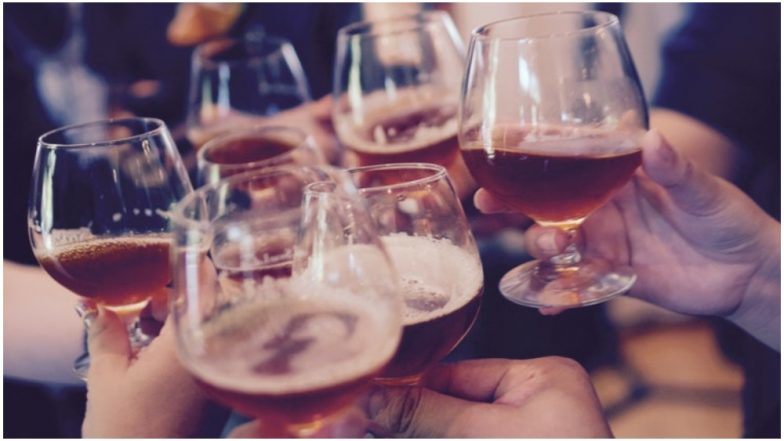Washington D.C.: Reading pro-drinking comments on alcohol advertisements on social media could boost teenagers’ desire to drink. According to a new research in the Journal of Studies on Alcohol and Drugs, social media users who view alcohol ads are also more likely to ‘Like’ or ‘Share’ an ad when it has pro-drinking comments. “There is more information on social media than just a post or a message. We are exposed to how other users respond to a post, and it is those responses that can influence your desire to drink,” said Dr Jonathan Noel, the study’s lead author.
“Our findings suggest that comments left by other social media users may either reinforce or negate the message from a post,” he added. With hundreds of corporate-sponsored alcohol ads on social media sites (with millions of Likes and Shares), plus millions of views of alcohol ads on YouTube, alcohol companies have expanded platforms to reach young consumers.
The new study suggests that the industry needs to improve the voluntary self-regulatory system that governs its advertising, possibly by limiting or banning comments on social media advertising. Conducted by Drs. Noel and Thomas Babor at the UConn School of Medicine, the study involved 120 young adults, ages 21 to 24, living in the United States. Each participant viewed four online ads (actual beer advertisements posted on Facebook). Here’s Why Alcohol Overconsumption is Bad for You
The researchers then chose certain comments that would appear with the ads — either pro-drinking comments that had accompanied that ad online or anti-drinking comments. The ads also varied on whether there were a high number of Likes, Shares, or Comments (thousands) or a low number (dozens to hundreds). WHO Launches Initiative to Reduce Harmful Use of Alcohol
After the participants viewed each advertisement, they were asked whether they thought the ad would increase the desire to drink. The participants also said whether they would Like or Share the ad they viewed. They received $ 10 for participating. The lowest desire to drink was found after participants were exposed to ads with anti-drinking comments plus a high “user engagement” (i.e., Likes/Shares/Comments). Compared with this ad, the desire to drink was 3.5 times higher after participants saw an ad with pro-drinking comments plus high user engagement.
Further, compared with the ads with anti-drinking comments, ads with pro-drinking comments left participants more than twice as likely to say they would Like or Share the ad. “It’s fascinating really. Not only might these comments influence the desire to drink, but they also can increase the reach and virality of the original message,” says Dr Noel.
Overall, though, the researchers said it wasn’t the number of Likes, Shares, and Comments that appeared to influence the participants but the type of comments — that is, comments for or against alcohol. Currently, alcohol advertisers have a system of self-regulation in place intended to limit depictions of excessive use and appeal to young people, among other restrictions.
According to the researchers, the current results suggest that comments should be restricted or banned altogether on alcohol ads on social media. Another possibility they suggest is that companies could use the comments sections to promote messages about moderate and responsible drinking.
Lifestyle | Latest Information on Breaking News & Updates on Lifestyle at Latestly.com

